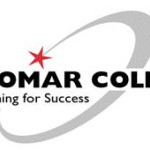- Industry: Education
- Number of terms: 12355
- Number of blossaries: 0
- Company Profile:
Founded in 1946, Palomar College is a public two-year community college in the city of San Marcos, located in north San Diego County, California. Palomar offers over 300 associate degree, certificate programs and is designated by the U.S. Department of Education as an Hispanic-Serving Institution ...
The modern Homo sapiens who appeared in Europe by 40,000 years ago. Their skeletons generally were lighter than the Neandertals who occupied Europe at that time. The Cro-Magnon had broad, small faces with pointed chins and high foreheads. They are the ancestors of modern Europeans.
Industry:Anthropology
The methods an animal uses to move. These may include such things as swimming, jumping, walking, brachiating, etc.
Industry:Anthropology
The membrane that develops around an embryo and contributes to the formation of the placenta. Later, as a fetus develops, the chorion fuses with the amnion. See chorionic villi sampling for an illustration.
Industry:Anthropology
The meiosis process of male sex cells that produces sperm. It takes place in the testes of humans and other male animals.
Industry:Anthropology
The meiosis process of female sex cells that produces ova. It takes place mostly in the ovaries of humans and other female animals.
Industry:Anthropology
The medical condition resulting from prolonged famine. Symptoms include extreme emaciation, diarrhea, anemia, and apathy. Women with marasmus usually stop ovulating. The loss of insulating body fat makes people with marasmus highly vulnerable to death resulting from a drop in core body temperature when the air falls below 60-65° F. Children who survive marasmus usually develop short adult stature and some degree of permanent brain damage. See kwashiorkor.
Industry:Anthropology
The measure of the total energy utilized by the body to maintain its necessary processes while at rest. Those processes include keeping the heart, brain, and other organs functioning normally and the necessary replacement of old or damaged cells. About 75% of the food energy that we burn every day is used for these functions. The remaining energy is used to fuel physical work or is stored in fat reserves for when it is needed. Basal metabolic rate also refers to the minimum level of heat produced by the body at rest.
Industry:Anthropology
The mating of two genetically different plants of the same species. Usually, the term is used in reference to the crossing of two pure breeding (homozygous) plants.
Industry:Anthropology
The mating of closely related individuals, such as brothers, sisters, or cousins. This is an extreme form of positive assortative mating.
Industry:Anthropology
The Linnaean classification system use of two Latin name categories, genus and species, to designate each type of organism. A genus is a higher level category that includes one or more species under it. For example, humans are Homo sapiens, or "man who is wise"--Homo is our genus and sapiens is our species. Binomen or binomial nomenclature literally means "two names" in Latin.
Industry:Anthropology
